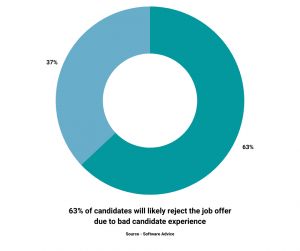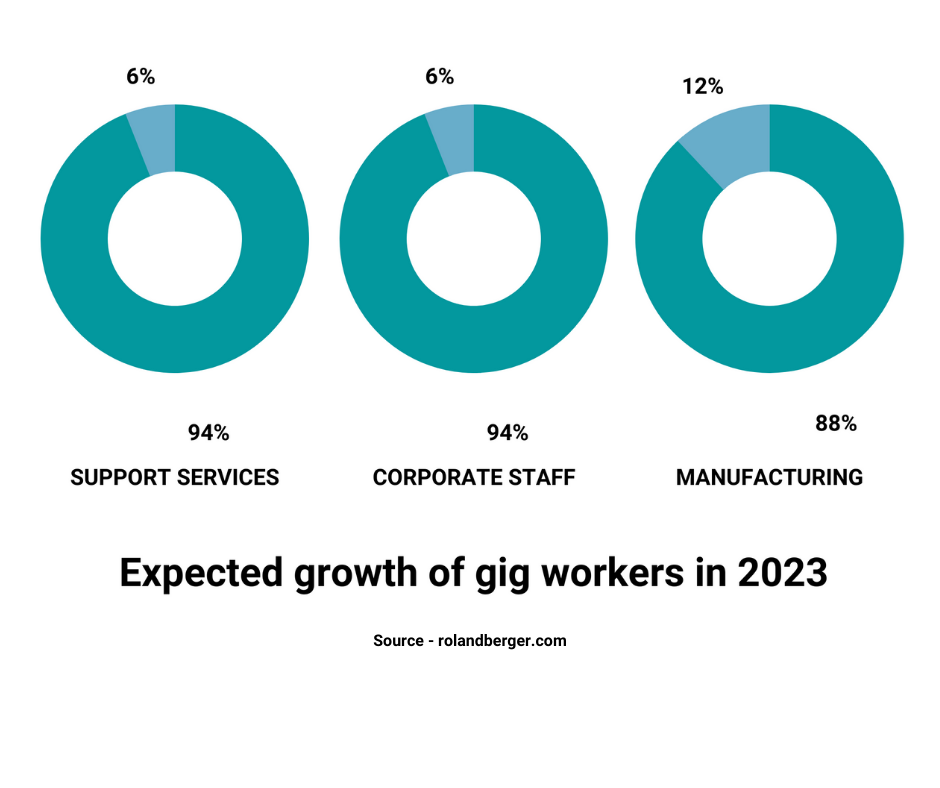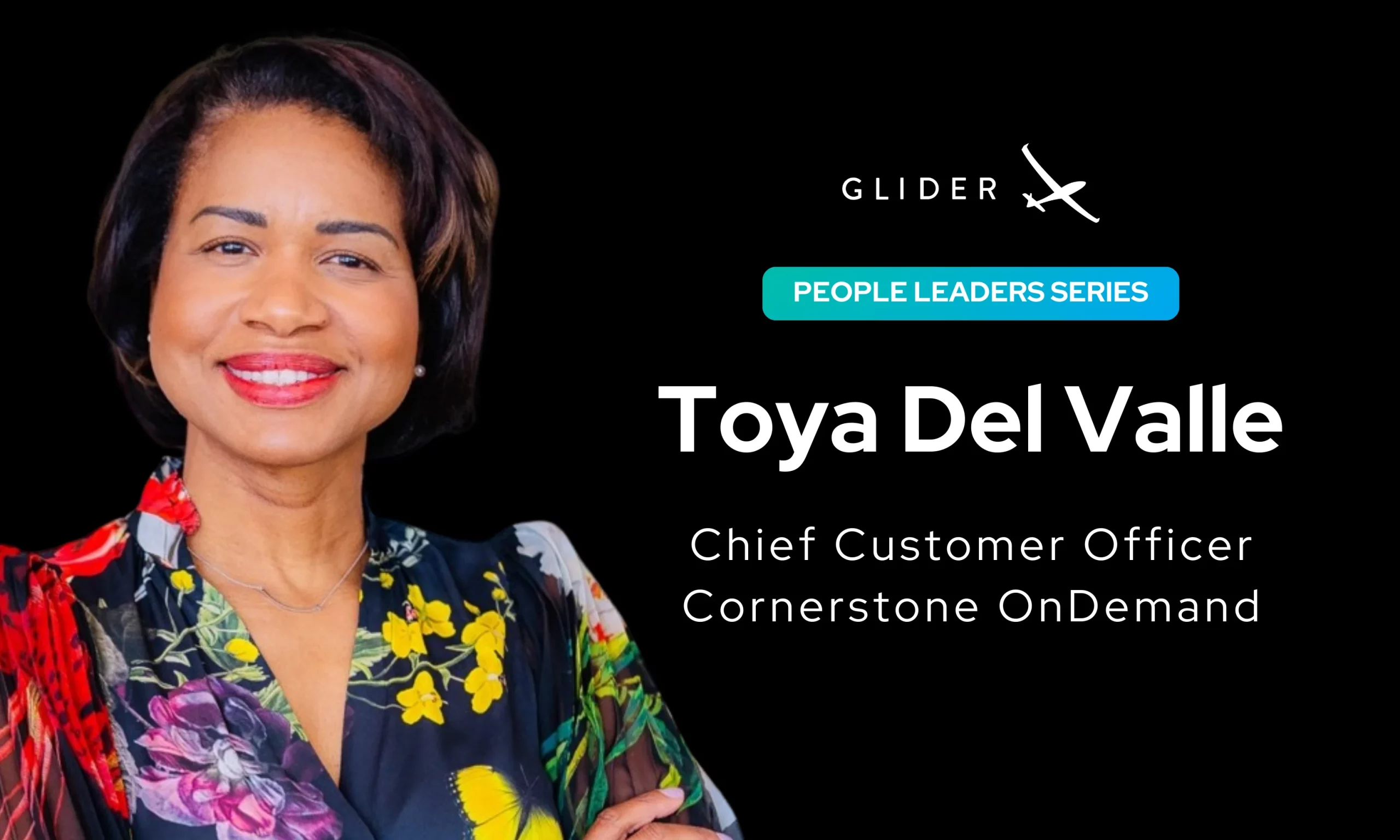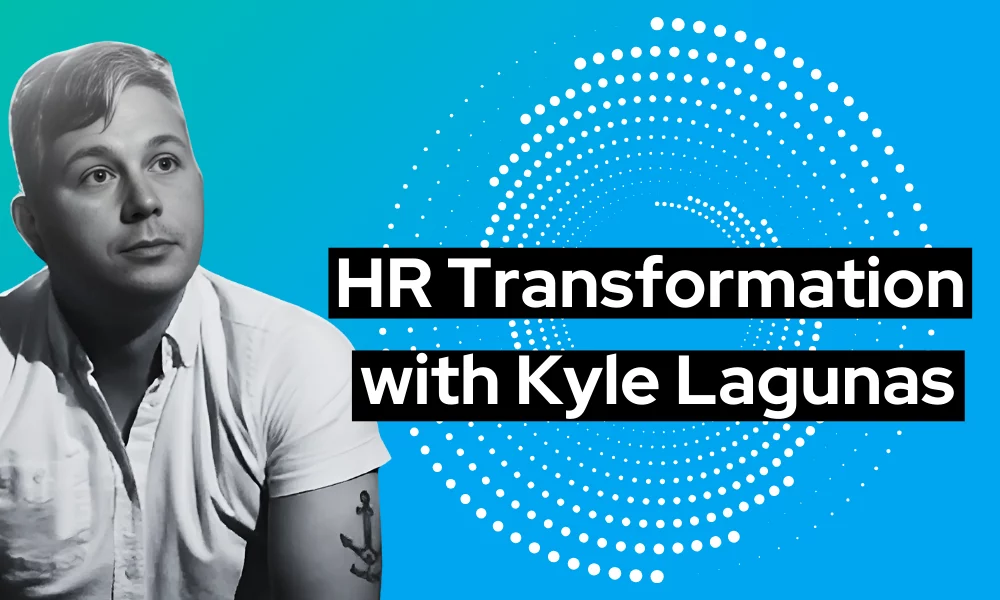
Make talent quality your leading analytic with skills-based hiring solution.

The impact of COVID-19 on the job sector has been the central topic for job seekers as well as employers. With delays and cancelations of the recruitment process, the world economy has suffered a lot. Economists believe that an economic recession is about to befall us.
Although, now it seems that people have started to live with it. The world has gradually traversed with time and we have all accepted the fact that COVID-19 is here to stay. Companies have gone remote and there seems to be a ray of hope.
Or is it?
The outrage seems to have come under control but the impact of the virus will haunt us for years to come.
Keep reading this and find out the following:
The COVID-19 pandemic is an undoubted global shock that has caused concurrent wrecking to both supply and demand in the world economy. As per the report entitled ‘COVID-19 and the world of work: Impact and policy responses’ by the International Labour Organization, it was explained that the crisis has already transformed into an economic and labor market shock, impacting not only supply (production of goods and services) but also demand (consumption and investment).
According to the International Monetary Fund’s (IMF) chief,
“World is faced with extraordinary uncertainty about the depth and duration of this crisis, and it was the worst economic fallout since the Great Depression.”
The economic stress has started and will grow with time. Lockdown and social distancing have indeed minimized the dangers of excessive spreading, but they have also caused a sharp decline in demand for goods and supply of goods in the market.
Every sector has been affected by this COVID-19 pandemic. The hospitality sector, tourism sector, education sector are the ones that have suffered the most. The World Tourism Organization estimates a 20-30% decrease in international tourist arrivals.
Organizations around the world have been freezing or reducing recruitments since the beginning of the pandemic. This has rather harmed the job sector.
The rise in unemployment has reached new heights. As per the International Labor Organization report of July, there were nearly 400 million job losses in the second quarter of the year.
Job losses have become common. Many companies have shut down services. The daunting factor is that we do not know when the pandemic will end and if fresh recruitments get delayed or canceled, it will lead to an economic depression.
Employee laying offs have also increased over time, making the situation worse. Around 41 Lakh people have lost their jobs amid the pandemic in India, as per joint reports by International Labor Organization and Asian Development Bank.
The success of a company depends on the manpower possessed by that company. The better the workforce, the better the performance.
Hiring candidates plays a big part in securing the future of the company and thus, a delayed or halted recruitment process can cause great damage to the company. Here are some of the risks that come along with a delayed recruitment process.
When positions remain unfilled for an extended amount of time, they put a lot of stress on the prevailing workforce. Increased workload degrades the overall efficiency of the manpower. This excess stress results in bad work performance, ultimately leading to the downfall of the business.
Delayed recruitment processes also create knowledge gaps and skill shortfalls, affecting the company’s bottom line. The company’s reputation gets damaged, also lowering the business productivity and revenue.
Today, almost all candidates research on the company reviews before applying for a position. If the reviews are bad, candidates would not apply for the job. Around 53% of candidates say that they would not recommend a company if they had to face a lengthy recruitment process.
Finding top candidates is a tough job. Nevertheless, a delayed recruitment process makes this pursuit even tougher. A lengthy hiring process makes the candidate look out for other options and in this competitive market, top candidates prefer those companies which do not put them through a strenuous recruitment process.
In today’s skills-short market, employers need to be proactive. As per reports, 40% of candidates receive multiple job offers, while 65% of candidates accept other offers due to delayed hiring processes.
As per Glassdoor, 97% of employers find it tough to find top candidates.
A lengthy recruitment process incurs costs both financially and non-financially. The prolonged periods are substantially costly for the companies. Moreover, they also cause shortfalls in the workforce.
Around 15% of positions remain unfilled for more than a month, giving hard time to the organizations. Also, positions that remain vacant for such a long period lose their popularity. Most candidates turn away from positions because they seem old.
Employers should deliver an exceptional candidate experience from the moment a candidate applies for a job, right through to the interview phase.
Lengthy or delayed recruitment processes that lack communication or timely updates create bad candidate experiences. Apart from that, delayed onboarding also adds to the frustration of candidates.
Employers need to understand that jobseekers consider interview experience as a reflection of employee experience. A lengthy process makes candidates opt-out from the position.

Video interviewing has become one of the prominent modes of interviewing now. To reduce human interaction, companies have started digital interviewing to carry on their recruitment process.
Face-to-face interviews have been wiped off the picture. One-way and two-way video interviews have taken their place.
This tactic has also helped in making the interview process more efficient and effective. The overall performance has gotten better after the implementation of remote video interviewing. Candidates as well as recruiters have been able to convey their best.
This change has drastically reduced the costs of the physical interviews and made the whole process faster.
Glider provides a best-in-class video interviewing platform where the interviewer can create scenarios and watch the candidates’ responses at any time. The interviewer can also corroborate with the candidates during the interview process and monitor every move made by the candidates remotely.
To work within the social distancing norms, most companies have reduced the search for candidates. Companies have been focusing on the local talent pool for quite some time now to minimize excess traffic.
This has somewhat made the talent pool narrow and companies are missing out on great candidates. This has impacted on the recruitment process and the overall productivity of the company.
However, with the help of assessment vendors such as Glider, most companies have increased their talent pool, resulting in better candidate reach and better hires.
The gig workforce has gained popularity during this phase. With companies trying to reduce costs without compromising the value of work, the contingent workforce has leveled up.

A proper standardized recruitment process nullifies all the woes. Organizations must strategize a plan to utilize the resources well and make the process more interactive.
A streamlined process set to achieve the goal of maximum efficiency is the only solution to reduce the lengthy process. Employers need to ensure their goals and objectives and strategize the whole process.
Glider provides a guided standardized recruitment process that gives step-by-step instructions to interviewers throughout the phases. The platform helps in creating consistent and objective interviews that comply with the company regulations.
Make your recruitment process streamlined and standardized. Arrange a meeting with Glider. For more details, visit: www.glider.ai

“The Perfect Candidate Just Hacked Us”: Inside the Global Playbook of Hiring Fraud That 100% test score might be your biggest red flag. Enterprise breaches don’t always start with phishing emails; sometimes, they start with a fake job interview. In this episode of Talented, Joseph Cole sits down with COO Ben Walker to unpack one […]

Can HR Stop Playing Buzzword Bingo with Skills and AI? If you’re an HR or TA practitioner or work in HR Tech in any capacity, AI and Skills-Based Hiring is what everyone is talking about. The problem? All the talk is diluting the importance of two very interrelated topics. Glider AI sponsored the Transformation Realness […]

Q&A with HR/TA Analyst Kyle Lagunas The traditional playbook that was HR is being rewritten. AI is reshaping work, skills-based strategies are transforming hiring, and HR teams are under pressure to deliver more with less. HR isn’t just about managing people anymore—it’s about engineering the future of work. In this Q&A session, Kyle Lagunas and Joseph […]